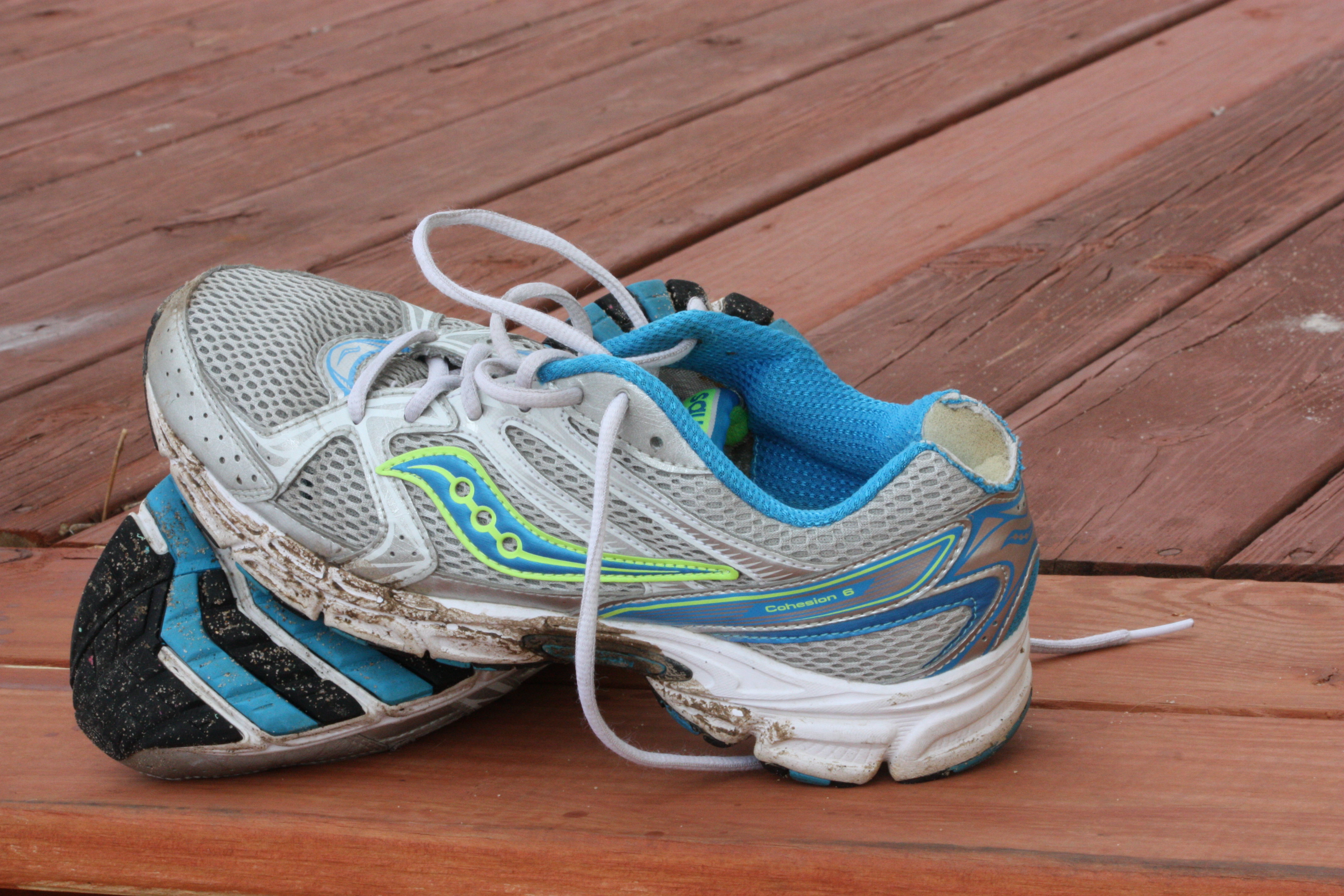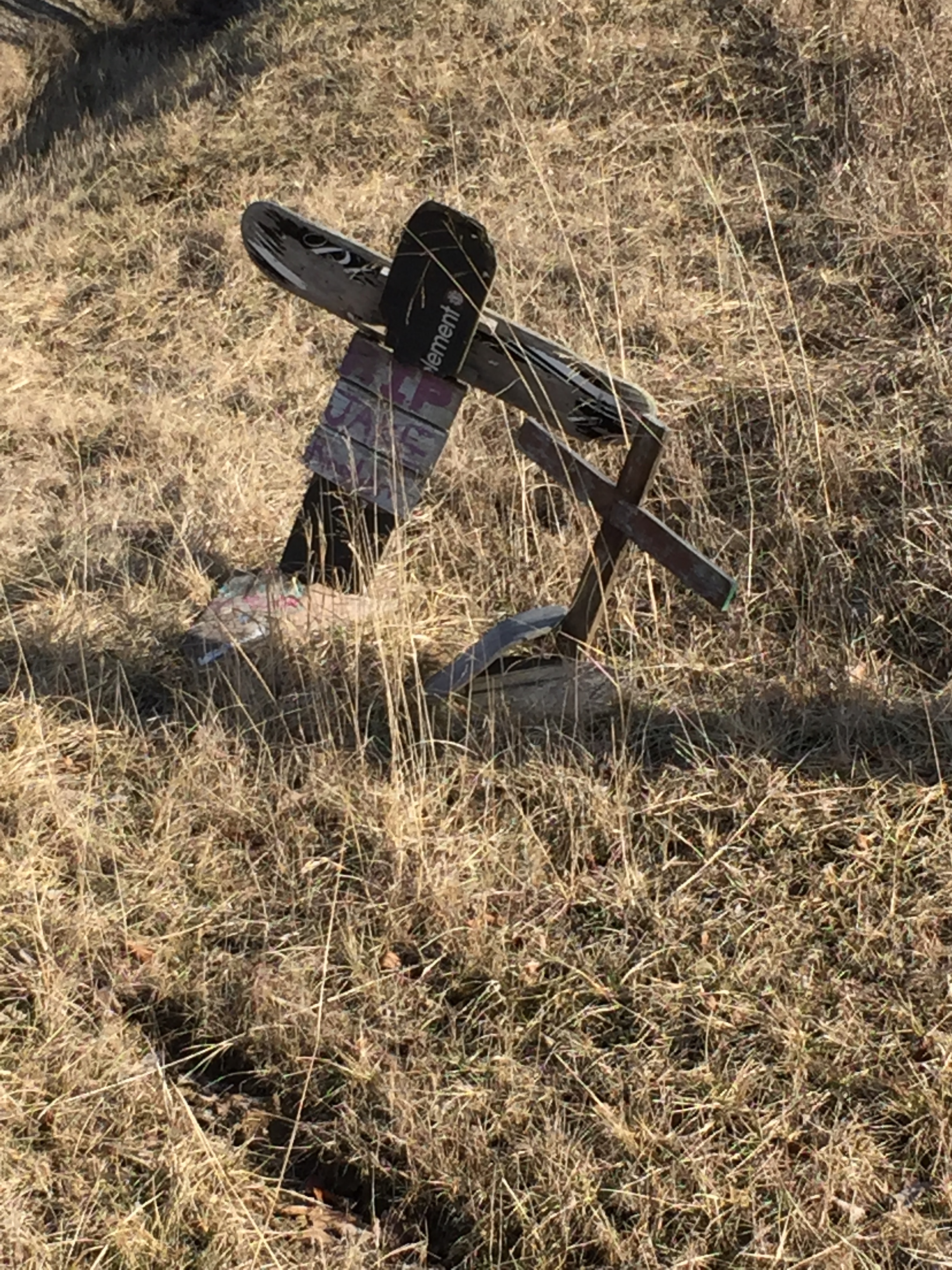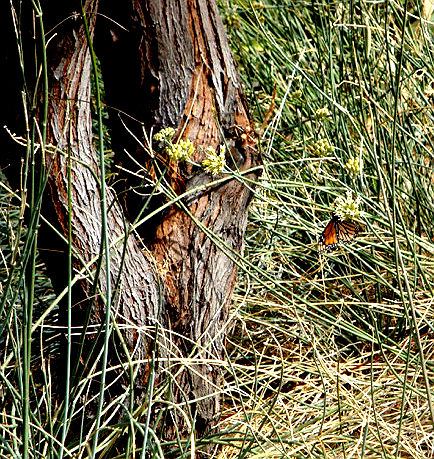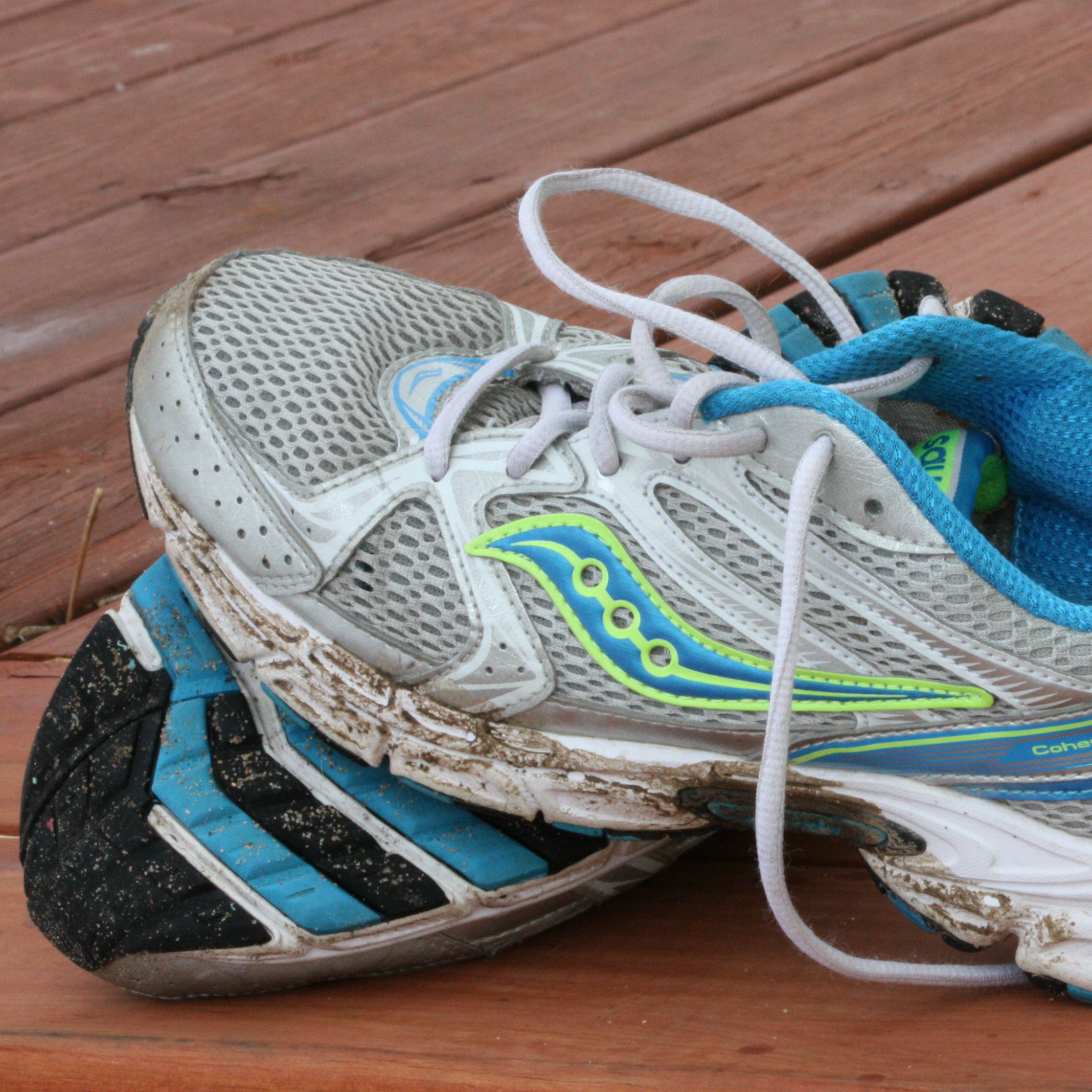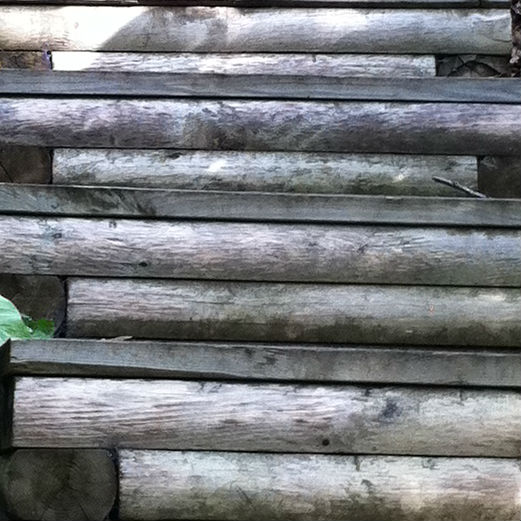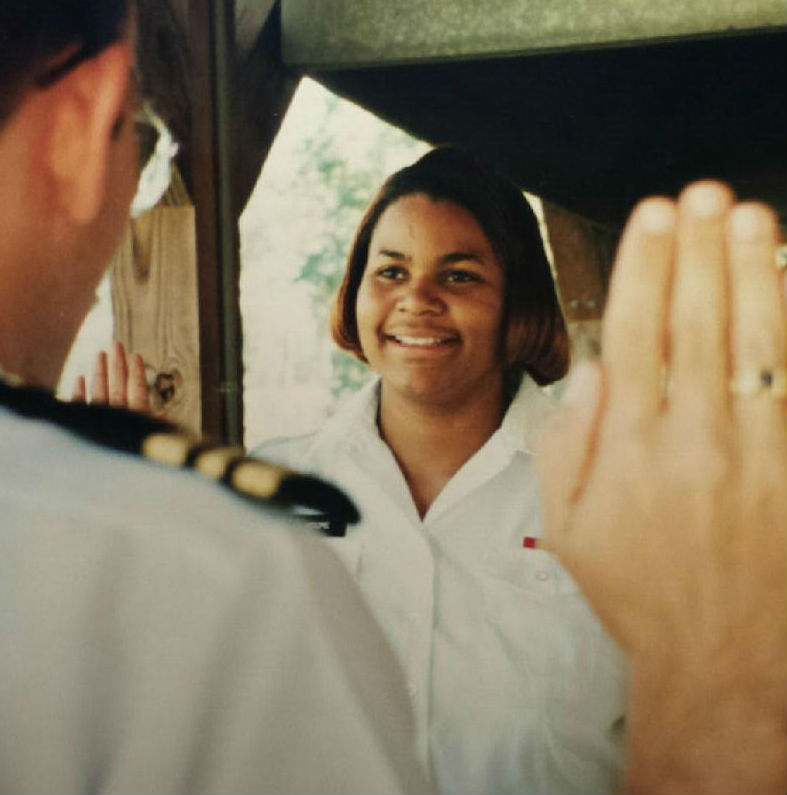I changed hurriedly into my running shorts and faded sweatshirt. On the way home from Milwaukee, I’d been seized by an urge to run, and this was the day for the run I had in mind. As I dressed, I tried to ignore a mild wave of guilt. My son had spent the afternoon, after kindergarten, with my parents instead of taking the school bus home. Surely they wouldn’t mind feeding him supper.
I walked across my bedroom – a room so tiny that when I’d moved in two months earlier, I’d had to stow my dresser in the closet. Now I opened my jewelry box atop the dresser and, for the first time in six months, slipped the plain gold ring onto the finger of my left hand.
Then I paused. There was the other ring, the heavy silver band wrought with kissing doves. Impulsively, I shoved it onto the middle finger of my right hand and closed the closet door with an emphatic thump.
I sat on the living room floor to tie my shoes. Usually it’s a precise ritual: hook one finger under the laces and slowly snug them from bottom to top. First the left foot, then the right. Pull the bow ties gently to make sure the tension is even before adding a double knot. Stand, bounce, and test for stowaway bits of gravel or wrinkles in the socks. That day I skipped the routine; I didn’t even pause to stretch. It was time to run.
The easy rhythm of shoes on pavement was soothing, like an old rocking chair, like a gentle song, like waves on the beach. Coils loosened in my shoulders and back. I glanced at my watch – what time was sunset in October? – and tried to calculate the distance ahead. Two-and-a-half miles through town to the depot and Glacial Drumlin Trail and then, how far to the river? Less than three miles, I thought, but incredibly, I couldn’t remember. Having grown up in Lake Mills, I thought I knew this segment of the trail as well as I knew my own face in the mirror. But amid the chaos of divorce and a hasty move from Milwaukee, I had stopped running. It had only been a break of four months, but my memory was clouded, as if it had been years. It tried again to calculate. Maybe it was over three miles from the depot to the Crawfish River, but in any case, I was sure I could get there before dark.
I opened and closed my hands as I ran, considering the unfamiliar feel of the rings. I’d seldom worn the silver band; it was heavy and too big. But I had kept if for fourteen years as a memento of our magical second date – second, that is, if you called dinner with our boss a first date, which we did because we flirted behind his back all night. I was twenty-five years old, new at the job, and new in town; when he suggested dinner without the boss, I said yes. Alone on our first real date, we ate pizza and talked about our dreams…or maybe I just listened. He bought flowers from a strolling vendor. And we sat on a park bench until midnight, laughing and swatting mosquitoes. He took the ring from his finger and put it on mine, and we marveled that two people could fall in love so quickly. Too quickly, I soon realized.
On Lake Street, I passed a small factory, the electronics manufacturer where my brother worked. Just then, a tall figure in white shirt and khakis walked out the door and toward the parking lot.
“Hey, Steve!”
He turned and squinted into the sun as I stopped and folded my ringed fingers behind my back. I wondered if he would ask how things had gone in court, or how I felt, but he only asked after my son.
“He went to Mom and Dad’s after school,” I answered. Unaware, I didn’t add, that his life was being irrevocably changed. “I really needed to squeeze in a quick run before picking him up.” Steve understood; he’s a runner, too. He dismissed me with a wave and headed home to his wife and baby.
If he had asked, I might have told him of the strangely brief court hearing in Milwaukee. A mere fifteen minutes. The judge asked a few questions, shuffled a few papers, then attempted a fleeting smile and said, “Let me remind you that neither of you may remarry for six months…. Good luck to you.” He pushed his chair back and stood.
My suddenly-former husband and I looked at each other. He whispered, “That’s it?” and I shrugged. We rode the elevator to the ground floor and walked together down the courthouse steps.
“Well. See you.”
“Yeah.”
Around my car in the parking lot were the same vehicles that had been there before, and I still had an hour left on my meter. Nothing on earth had changed, except for one thing.
A few blocks after leaving Steve, I reached the picturesque downtown square with its nineteenth-century storefronts facing a tree-filled park with a bandstand. If I hadn’t grown up in Lake Mills, I might have thought that a pretty town mid-way between Madison and Milwaukee was an ideal place to live. But I was uneasy about the idea of bumping into my old self – the one who was too good for small-town life – around every corner.
Steve’s wife Cheryl grew up in Lake Mills, too, but was five years behind me in school; we were nearly strangers when she married my brother. Within two years, she became my running partner and confidante. We began training for our first marathon together when my son was three and I was still pretending to be happily married. Week after week, we ran back and forth over miles of the railbed-turned-recreation-trail across three southern Wisconsin counties.
When you run next to someone for a dozen miles or more, swatting deer flies from her sweaty shoulders, and sharing bottles of sports drink, it’s natural to start talking. It’s natural to start saying things you never said to anyone else. Cheryl was the first person to know that there was trouble in my marriage, the first to know about our financial worries, and that my husband had lost his job…again.
We were running down the path one morning in late summer, discussing his fruitless job search. “It must keep him awake at night,” she said with sympathy.
“I wouldn’t know,” I answered, surprised, but somehow relieved, to hear the words coming from my mouth.
Her pace never varied; our footsteps marked off a few seconds while she waited for me to explain.
“He’s been in the guest room since spring.”
More footsteps.
“That’s a problem.”
“Yeah, it is.”
But even Cheryl didn’t know everything. It was too humiliating to repeat the names I’d been called, to speak of the days of silent treatment, or to admit that my self-confidence had been so crushed that for a long time, I couldn’t see how to build a life on my own.
I didn’t tell her, but maybe she sensed that something began to change as we trained. Distances that seemed impossible one month became history the next month as we ran longer and longer on our way to 26.2 miles. We imagined the finish line, and then we believed in it. The discipline, the physical exertion, even the companionship, seemed to hold me together. And if Cheryl’s confidence waned on a long run, I supported her. Even if I was good at nothing else, I was good at putting one foot in front of the other. I learned to keep going even when it hurt, even when I thought I had nothing left.
At Main Street I turned north and passed my old high school, where I had often gazed out the window and dreamed, like many a Midwestern teenager, of big cities, warmer climates, and some vague notion called freedom. But years later, facing life as a single parent, and needing to choose a new home, I turned reflexively to this familiar place and came to regard its confines, including my parents, as a safety net.
I reached the trail at the north end of town and turned onto the dirt path. In the summer, the trail was often crowded with cyclists, couples out for a stroll, families walking their dogs. On a weeknight in October, I expected solitude. It was just me and the long shadow sliding along the ground before me.
A year after our first marathon, I was ready to do it all again; but Cheryl was pregnant, so for my second marathon, I trained alone. Every other Sunday I drove to Lake Mills, leaving my son with his Grandpa and Grandma, while I ran fourteen miles, sixteen, eighteen. Every other week I added two miles to my long run, up to 26.2. I missed having Cheryl to spur me on. But strangely, I had found another source of encouragement. Cheryl and I had seen him before while running the Lake Mills segment of the trail. We called him “The Silent Biker.” Bald, muscled, and sleek, he might have been forty…or sixty. His eyes would have been a clue to his age, but they were hidden behind dark glasses. He wore little else, just shoes, shorts, and a sweatband. He’d grin, give us a “thumbs up,” and zoom past. On my long runs alone, I saw him regularly, and it might just have been my imagination, but he always seemed to appear just as my spirits and strength were flagging, as if my wretchedness could conjure him. Thumbs up! Zoom.
I smiled at the recollection and ran down the trail. For a while, the only sound was the crunch-crunch of fall’s first leaves beneath my shoes. Then whoosh, without warning, a flurry of brown feathers and dry leaves exploded and scattered, scarcely ten feet from my face. I drew a sharp breath – a sort of reverse scream – and my hands flew up, as if to hold my heart inside my chest. Just before vanishing, the flurry took shape, and I spied a blunt, square fan of tail feathers. In all my years of birdwatching and woodland hikes, I had never seen a ruffed grouse. Now I couldn’t wait to go home and tell…no one. What I felt was not a surge of loss or despair, but the recognition of a vast loneliness that had secretly enveloped me for years. I should have married a man who would care when I saw a ruffed grouse.
The sun sank lower, and my shadow no longer stretched before my feet. Instead it was cast upright against the trees along the path so that it ran beside me. I checked my watch again. Ten to six. I knew I wouldn’t make it before sunset. Clearly, I had miscalculated. To my right, beyond the colonnade of trees, the deepening blue of the sky bled into purple, then into a magenta that blanketed undulating farm fields along the horizon. How much farther could it be? I had run nearly five miles for the first time in months, and my legs were beginning to protest.
At last I reached the county highway, the final crossing before the river. Straining to see, I could just make out the gray trestle bridge about a hundred yards away. I half-expected the Silent Biker to show up. But just the thought of him was encouragement enough.
The approach to Crawfish River bridge was sheltered by tall oaks, their branches arching over the path. The sun sank out of sight as I reach the wooden bridge, and a full moon was hanging in the southern sky.
I looked over the bridge rail at the moon mirrored on the water. Something told me I should pause and contemplate, but my mind went blank. Apparently all the thinking had been done. This was not the way I had planned it. The gold ring was supposed to catch the last rays of sunlight as it sailed through the air, like the closing scene in a movie. But things seldom go according to plan, and I have gotten better at improvising. I pulled off the big silver ring and aimed for the moon’s reflection. In the faint light, I lost sight of the ring until it broke the surface and sent ripples across the water, far from the moon. I slipped my wedding band off, focused on my target, and adjusted my aim, to the left and farther out. There.
Concentric circles widened around the moon’s image and intersected with the first set of ripples, already fading. In a few seconds the surface of the river was smooth again. Maybe the change I was expecting to feel…had already happened. And maybe I already knew that when I took the rings – those two little pieces of molded metal that said I was bound to another person – from the jewelry box. Throwing them in the river didn’t make me more free than I already was. Softly the darkness was gathering; the purple sky would soon be black. I turned and started to run slowly, listening to my footsteps as they echoed hollow on the old wooden planks. It was as if nothing on earth had changed, except for one thing.
Doreen Pfost is the author of This River Beneath the Sky: A Year on the Platte (2016), an essay collection that weaves memoir with the natural history and human history of Nebraska’s Platte River. Her blog, A Naturalist Walks Home, can be found at doreenpfost.com. She is still a mostly-solitary runner, but is now married to a wildlife biologist who regularly hears about the birds she sees–including ruffed grouse. They live in Elroy, Wisconsin.
